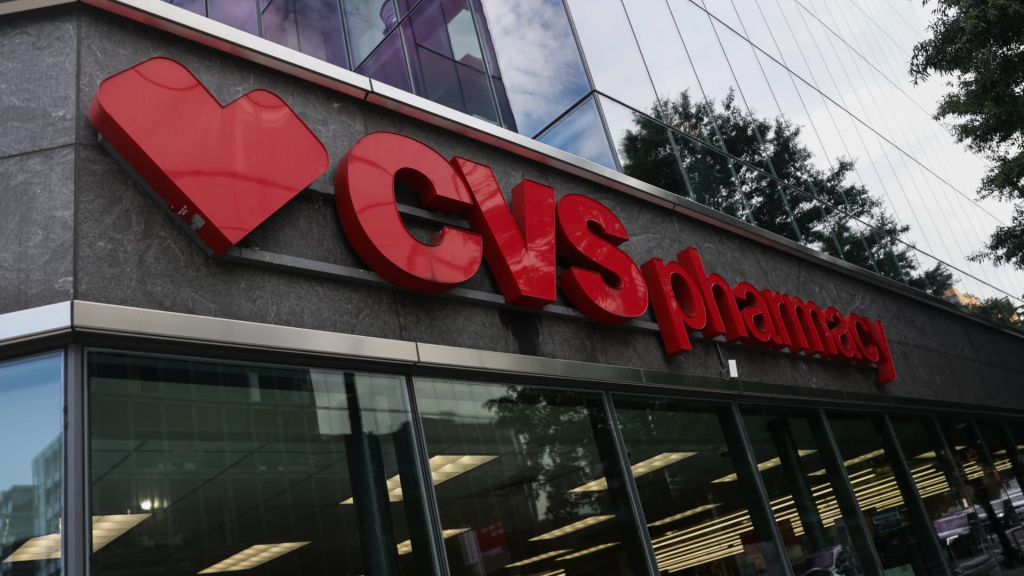CVS Health announced its first-quarter earnings on Thursday, revealing results that surpassed analysts’ expectations and prompting an increase in its full-year guidance, signaling a positive trend for its struggling insurance division.
The company now projects adjusted earnings for the full year to be between $6 and $6.20 per share, a notable rise from its previous forecast of $5.75 to $6 per share.
However, CVS revised its GAAP diluted EPS guidance downward, primarily due to charges stemming from a legal dispute involving its pharmacy services subsidiary, Omnicare. Recently, a jury found Omnicare liable for providing medications without valid prescriptions to individuals in assisted living and long-term care facilities. CVS intends to appeal this decision.
The company did not release a revenue forecast for the year, expressing a “maintaining cautious view for the remainder of the year” amid ongoing elevated medical costs and “the potential for macro headwinds.”
In terms of first-quarter performance compared to Wall Street’s expectations, CVS reported the following, based on a survey of analysts conducted by LSEG:
- Earnings per share: $2.25 adjusted vs. $1.70 expected
- Revenue: $94.59 billion vs. $93.64 billion expected
Over the last year, CVS’s insurer, Aetna, along with its competitors, has faced challenges from unexpectedly high medical expenses as an increasing number of Medicare Advantage patients have returned to hospitals for previously delayed procedures. Nevertheless, CVS’s insurance sector displayed some improvement for the first time in several quarters.
The medical benefit ratio of CVS’s insurance unit decreased to 87.3%, down from 90.4% a year ago, indicating that the company collected more in premiums than it paid out in benefits, which generally enhances profitability.
This positive development is attributed in part to better performance in its Medicare business and improved Medicare Advantage star ratings for the 2025 payment year, which assist patients in evaluating the quality of Medicare health and drug plans.
Nonetheless, this improvement was somewhat counterbalanced by a $431 million charge from so-called premium deficiency reserves in the insurance segment, related to expected losses in the 2025 coverage year. This refers to an insurer’s liability if future premiums fall short of paying anticipated claims and expenses.
CVS’s net income for the first quarter stood at $1.78 billion, or $1.41 per share, a substantial increase from $1.12 billion, or 88 cents per share, during the same period last year.
When excluding certain items like amortization of intangible assets and restructuring charges, the adjusted earnings per share for the quarter were reported at $2.25.
The company achieved sales of $94.59 billion in the first quarter, representing a 7% increase from the prior year, driven by growth across all its business segments.
However, sales within CVS’s retail pharmacy segment fell short of Wall Street estimates for the quarter, as reported by StreetAccount. This division has faced pressure from reduced consumer spending and lower reimbursements for prescription medications.
This quarter’s report marks the end of the second full quarter under David Joyner’s leadership as CEO of CVS, having taken over from Karen Lynch in mid-October. Joyner has been steering the company through efforts to enhance profitability and improve its stock performance.
As part of a broader turnaround strategy, CVS has initiated a management restructure and plans to implement $2 billion in cost cuts over the coming years.
Strength across business units
CVS’s insurance segment generated $34.81 billion in revenue during the quarter, reflecting an 8% increase from the first quarter of 2024. Analysts had predicted this unit would yield approximately $33.51 billion for the period, according to StreetAccount estimates.
The insurance unit also realized adjusted operating income of $1.99 billion for the first quarter, a significant rise from $732 million in the same period last year.
Additionally, the company announced that Aetna will cease offering health insurance plans on the Affordable Care Act marketplaces, or individual exchanges, beginning in the 2026 plan year.
CVS’s pharmacy and consumer wellness division reported sales of $31.91 billion for the first quarter, an increase of over 11% from the previous year.
However, this figure fell short of the expected $35.27 billion for the quarter, as per StreetAccount.
This segment services more than 9,000 retail pharmacies, providing not only prescription medications but also vaccinations and diagnostic testing.
In the health services category, CVS generated $43.46 billion in revenue for the quarter, up nearly 8% from the same time last year. Analysts had anticipated this unit to bring in $43.64 billion during the period, as per StreetAccount comparisons.
This segment encompasses Caremark, one of the largest pharmacy benefit managers in the country. Caremark engages in negotiations for drug discounts with manufacturers on behalf of insurance plans, establishes medication lists known as formularies that are covered by insurance, and reimburses pharmacies for filled prescriptions.


























